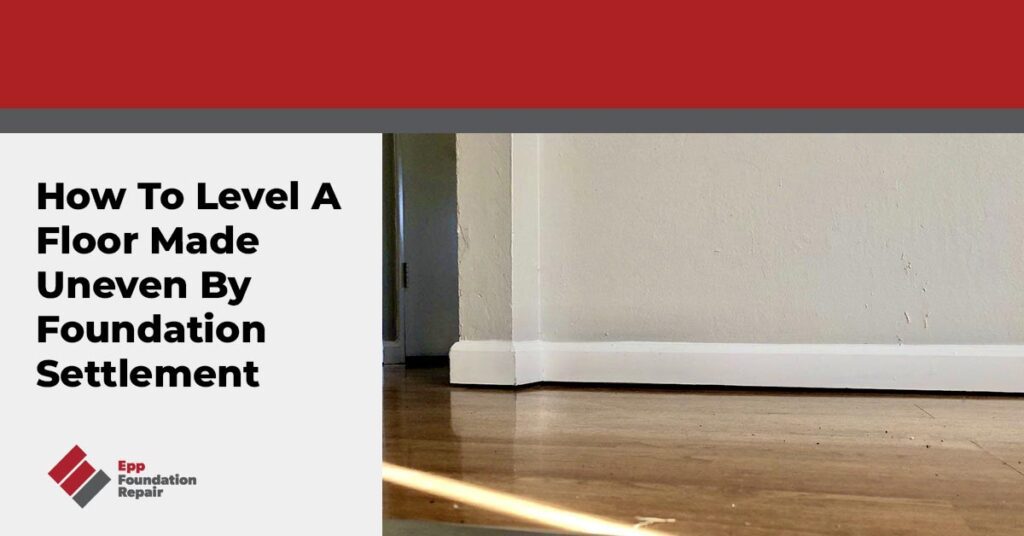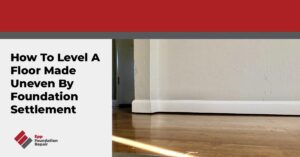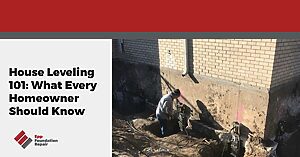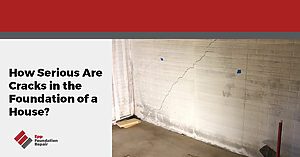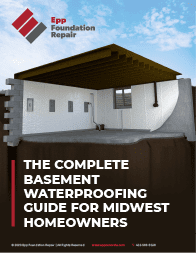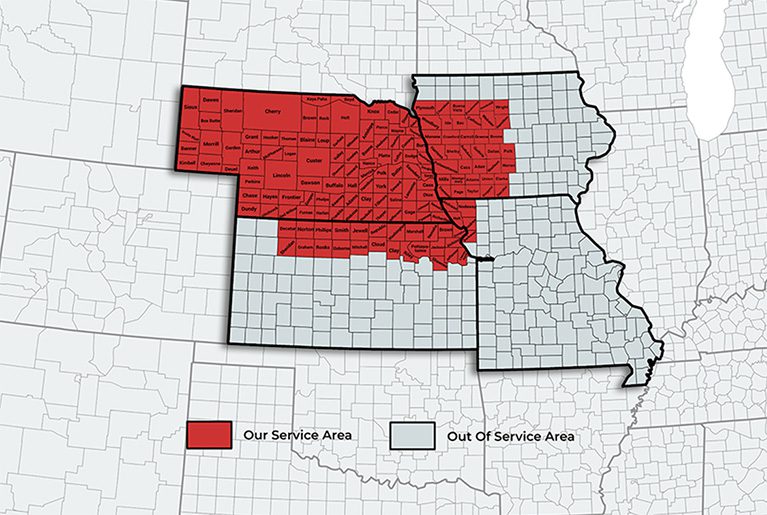Looking for information about how to level a floor made uneven by foundation settlement? If so, don’t hit that back button because you’ve landed on the right page. In this article, we’re going to talk about foundation settlement, how it can cause a floor to become unlevel, how to level a floor made uneven by foundation settlement, and more.
What is Foundation Settlement, and How Can It Cause A Floor To Become Unlevel?
Foundation settlement happens when a home’s foundation sinks unevenly into the ground. See the graphic below for an illustration of differential settlement compared to uniform settlement, which happens to most foundations after they’re built.
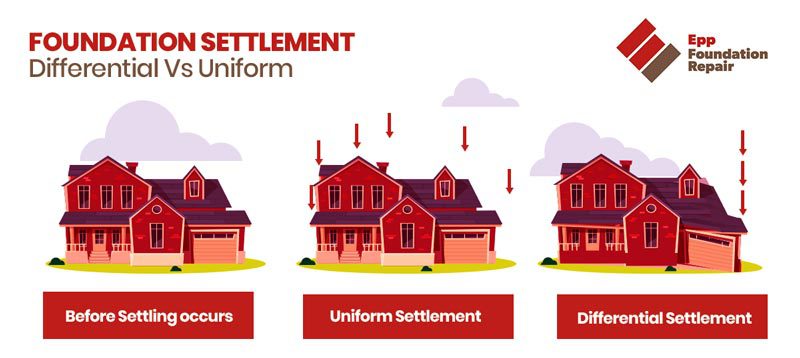
Differential foundation settlement can cause various problems, including unlevel floors, cracks, gaps between walls and floors, and difficulties opening and closing windows and doors. Differential settlement needs to be fixed immediately. If you wait, the problem will worsen, and you’ll face a more expensive repair.
What Causes Differential Foundation Settlement?
Foundation settlement is caused by various things, including the following:
- Inadequately compacted soil – Soil needs to be firmly tamped down before construction begins. If this isn’t done, the structure could settle unevenly into the ground after it’s built.
- Expansive soil – This is soil containing a high percentage of clay. It swells when it absorbs moisture and then shrinks when it dries out. This creates movement under the foundation that can lead to differential settlement.
- Erosion-prone soil – Poor drainage along with soil that’s prone to erosion could lead to the formation of voids under the foundation. If the foundation sinks into the voids, there will be differential settlement.
- Natural disasters such as earthquakes and floods
- Heavy excavation too close to the foundation – If your neighbor digs a big hole too close to your home, it could destabilize the foundation causing differential settlement.
- Weather changes – Imagine constructing a home on expansive soil during the dry season. When the wet season rolls around again, the soil absorbs moisture and swells. This could cause differential settlement.
If you see any of the above or anything else that strikes you as suspicious, contact a foundation repair contractor in your area for an evaluation.
How Foundation Underpinning Can Correct An Unlevel Floor
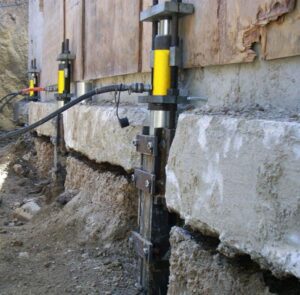
Foundation underpinning is a repair process that involves excavation down to the footing and the addition of push or helical piers to stabilize and support the foundation. Once the piers are in place, the foundation is raised using a synchronized hydraulic lifting system.
For more information see, What Is House Underpinning?
The Benefits of Getting Professional Help for Floor Leveling
If you’ve noticed that your floors are uneven, it’s essential to find out why to implement the correct repair solution. The only way to determine why the floor has become unlevel is by getting an evaluation from an experienced foundation repair contractor. An experienced contractor also has the tools and equipment necessary to perform the repair correctly. By getting professional help, you can be sure that your floors will be leveled correctly without further issues arising down the line.
Warning Signs of a Settling Foundation and When to Call a Professional
Every homeowner should learn to spot the signs of a foundation experiencing differential settlement. These include the following:
- Doors are no longer opening and closing properly
- Cracks in walls, floors, or ceilings
- Gaps around windows and doors
- Uneven floors
- Stair step cracks in brick or masonry
- Chimneys or porches that are leaning away from the house
- Bowed walls
- Torn or wrinkled wallpaper (The wall behind the wallpaper might be cracked.)
- Diagonal cracks from the corners of windows and doors
- Moldings that are separating from the wall or ceiling
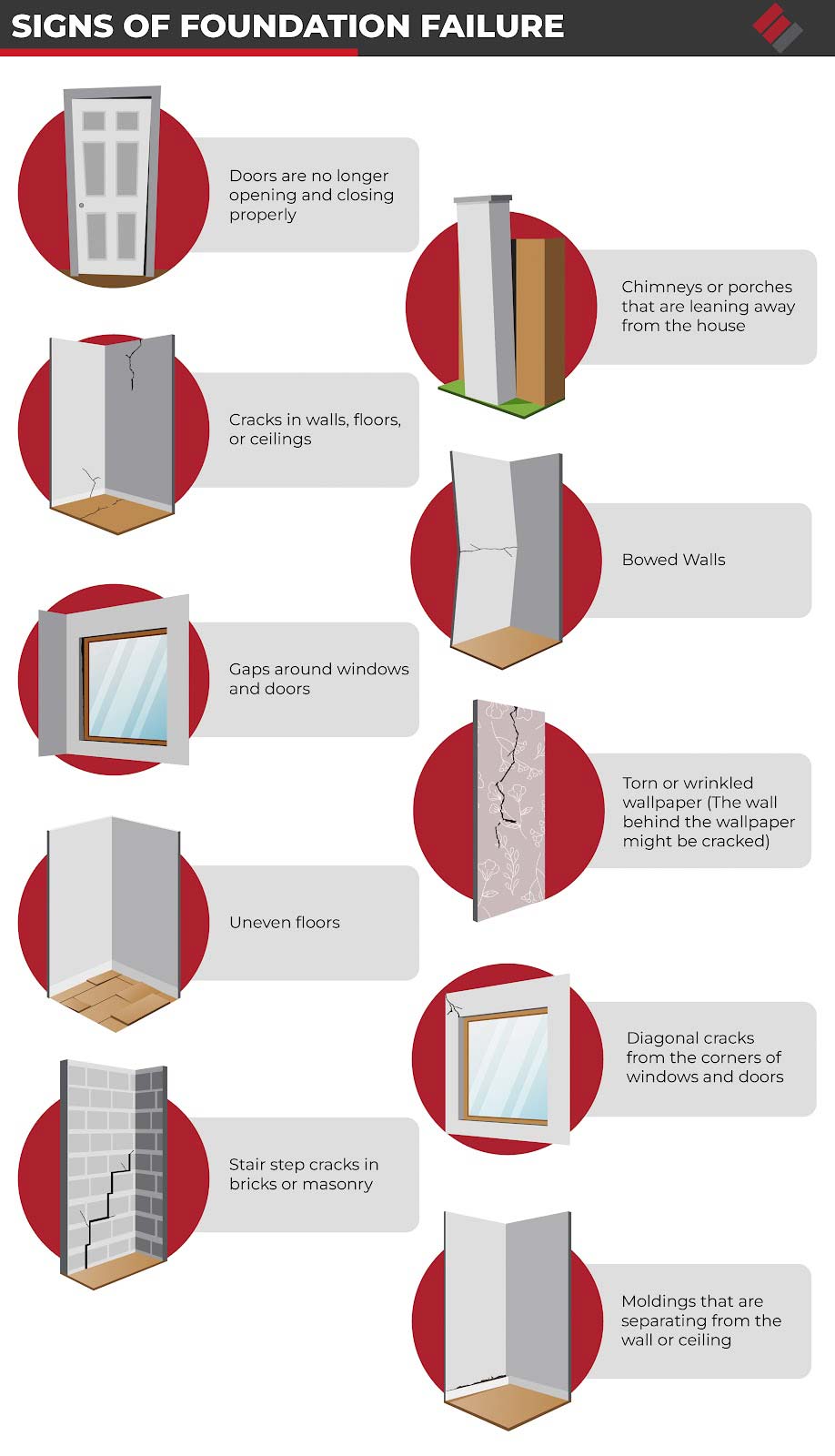
All of the above are signs of foundation settlement. If you see anything listed here – or anything else that seems suspicious – call in a foundation repair professional to provide an inspection and assess what needs to be done to correct the settlement and level the floor. Failure to address foundation issues as soon as they arise will lead to further damage and a more costly repair bill because foundation problems worsen over time.
Factors That Can Affect the Cost Of Floor Leveling Services
Without an in-person inspection, it’s impossible to say how much it will cost to level a floor caused by foundation settlement. However, we can say that several factors determine the final cost of floor leveling services. These include your geographic location, the severity of the foundation damage, the chosen repair solution, labor costs, and the cost of materials needed for the job. The only way to know for sure how much it will cost to level a floor is to contact a foundation repair contractor and ask them to come out for an evaluation.
Tips on Maintaining an Evenly Leveled Floor After Work Has Been Completed
Homeowners should take the necessary steps to prevent future foundation settlement after leveling their uneven floors. Getting groundwater under control is essential because most foundation problems, including differential settlement, are caused by water. Here are some things you can do to ensure the soil around your home’s foundation remains dry:
- Clean your gutters regularly – Clogged gutters can cause water to spill over the side of the house and soak the ground around the foundation.
- Use downspout extensions – These are inexpensive, easy to install, and will carry runoff at least 4 feet from your foundation before releasing it.
- Regrade your yard so that it slopes away from the foundation – This will prevent water from draining toward and soaking the ground around the foundation.
- Relocate any flowers or shrubs planted next to the house – You don’t want a reason to add water to the soil around the foundation.
- Install a drain tile system – If you want to keep the soil around your foundation dry, nothing beats a drain tile system. It’s a foundation waterproofing gold standard. For more information on how a drain tile system works, see How Does A Drain Tile System Work?

With proper preventive measures such as these, you can be assured that your recently leveled floor will remain level for many years.
If you have an unlevel floor in your home and suspect it might be caused by a foundation problem, contact us today to schedule a foundation evaluation. If we find a problem, we’ll also give you a repair estimate. Since 1994, we’ve helped clients in Lincoln, Omaha, Kearney, Nebraska, Missouri, and parts of Northeastern Kansas with foundation repair, basement waterproofing, crawl space encapsulation, and concrete leveling for their homes.

